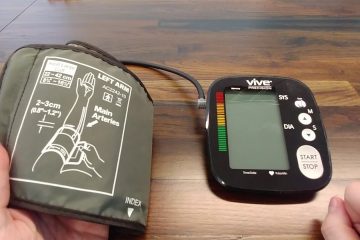How Does Remedial Massage Deals With Sleep Issues?

A sleepless condition, often referred to as insomnia, is a sleep disorder characterized by difficulties in falling asleep, staying asleep, or experiencing non-restorative sleep despite having the opportunity to sleep. Insomnia can be a short-term (acute) issue or a long-term (chronic) problem. Regular remedial massage melbourne sessions can help improve sleep quality by reducing stress and promoting relaxation.
How does remedial massage deal with sleep issues?
Remedial massage is a type of massage therapy that focuses on treating specific musculoskeletal issues, promoting relaxation, and aiding in the healing process. While it’s not a direct treatment for sleep issues like insomnia, it can indirectly contribute to improved sleep quality by addressing underlying factors that may be causing sleep disturbances. Here’s how remedial massage might help with sleep problems:
- Reducing muscle tension and pain. Muscle tension and pain can make it difficult to fall asleep and stay asleep. Remedial massage targets specific muscle groups to release tension, reduce pain, and promote relaxation. By alleviating physical discomfort, the body is more likely to enter a state of relaxation conducive to sleep.
- Stress reduction. Stress and anxiety are common contributors to sleep problems. Remedial massage can trigger the release of endorphins, which are natural “feel-good” hormones. These endorphins can help reduce stress and anxiety levels, making it easier to unwind and fall asleep.
- Improved circulation. Massage techniques used in remedial massage can improve blood circulation, which can have a positive impact on sleep. Better circulation means that oxygen and nutrients are delivered more efficiently to body tissues, aiding in their repair and rejuvenation during sleep.
- Promotion of relaxation. The gentle, rhythmic motions of remedial massage can induce a state of relaxation and calmness. This can activate the parasympathetic nervous system, which counteracts the “fight or flight” response and promotes a state of relaxation, making it easier to fall asleep.
- Enhanced body awareness. Through remedial massage, individuals can become more aware of their body and any areas of tension or discomfort. This awareness can encourage healthier posture and movement patterns during the day, which might contribute to improved sleep quality at night.
- Mind-Body connection. The relaxation and mindfulness that often accompany massage can foster a stronger mind-body connection. It can help individuals become more attuned to their body’s signals, potentially leading to better sleep hygiene practices and an improved sleep routine.
It is important to note that while remedial massage can provide these potential benefits, it might not be a standalone solution for severe or chronic sleep issues. If you’re experiencing persistent sleep problems, it is recommended to consult a healthcare professional to determine the underlying causes and develop a comprehensive treatment plan. This plan might include a combination of approaches such as improving sleep hygiene, addressing stress through relaxation techniques or therapy, and, if necessary, medical interventions.









